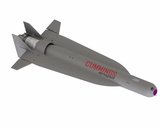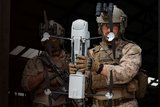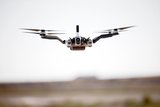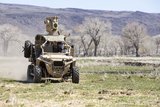DARPA explores future unmanned technologies
In its search for improved unmanned vehicle capabilities for military missions, the US Defense Advanced Research Projects Agency (DARPA) has launched its Maximum Mobility and Manipulation (M3) programme.
Announced by DARPA on 17 March, the programme was created as a result of what the agency considers to be the ‘poor’ capability of unmanned assets currently in service.
Focusing primarily on unmanned ground vehicles (UGVs), the programme ‘seeks to create and demonstrate significant scientific and engineering advances in robot mobility and manipulation’, according to a statement released by the agency.
‘Nature has adapted many mobility and manipulation modes (eg, such as grasping, walking, and undulatory locomotion) to multiple environments (eg land, water, and air). It is expected that many results of the M3 programme will be applicable to more than one environment,’ DARPA said.
The programme was initially announced in May 2010, and multiple contracts have since been awarded to companies including: Boston Dynamics, HRL, iRobot, Raytheon, Tekrona, and Vecna Technologies.
These companies, alongside some 14 universities and research institutes, have been contracted to create and demonstrate new technologies for the programme, which have been split into four tracks. These are: design tools, fabrication methodologies, control methods, and technology demonstration prototypes.
Efforts were expected to include both scientific and engineering development, as well as analysis, simulation and experiment, and the development of a UGV that can interact in an unstructured, dynamic and natural environment.
DARPA believes that new approaches to engineering better design tools, fabrication methods and control algorithms, were needed if the programme is to be successful.
The agency envisages programme reviews each year with M3 expected to reach its final review stage by 2014.
‘Initially M3’s control efforts will focus on approaches using augmented teleoperation, also known as supervised autonomy. Thus, concepts with primary application to full autonomy, cognition, reasoning, high-level decision-making, high-level decision-making under uncertainty, and other higher-level cognitive functions are envisioned as a potential later addition to the M3 programme,’ said DARPA.
More from Uncrewed Vehicles
-
![Cummings Aerospace showcases Hellhound loitering munition designed for US Army’s LASSO programme (video)]()
Cummings Aerospace showcases Hellhound loitering munition designed for US Army’s LASSO programme (video)
Cummings Aerospace presented its turbojet-powered Hellhound loitering munition at SOF Week 2025, offering a man-portable solution aligned with the US Army’s LASSO requirements.
-
![SOF Week 2025: PDW unveils attritable FPV drone for SOF operations at scale]()
SOF Week 2025: PDW unveils attritable FPV drone for SOF operations at scale
PDW has revealed its Attritable Multirotor First Person View drone at SOF Week 2025, offering special operations forces a low-cost, rapidly deployable platform for strike and ISR missions, inspired by battlefield lessons from Ukraine.
-
![SOF Week 2025: Teledyne FLIR white paper provides guidance on reusable loitering munitions]()
SOF Week 2025: Teledyne FLIR white paper provides guidance on reusable loitering munitions
Teledyne FLIR is highlighting the emerging requirements for 'recoverable and re-usable' loitering munitions across the contemporary operating environment during this week’s SOF Week conference in Tampa, Florida.
-
![SOF Week 2025: Kraken Technology group debuts K3 Scout USV in North America]()
SOF Week 2025: Kraken Technology group debuts K3 Scout USV in North America
High-performance maritime industry player Kraken Technology Group, based in the UK, has used the SOF Week conference in Tampa, Florida this week to debut its K3 Scout uncrewed surface vessel (USV) to the North American market.
-
![Palladyne AI and Red Cat to demonstrate capabilities for autonomous drone swarms to the US military]()
Palladyne AI and Red Cat to demonstrate capabilities for autonomous drone swarms to the US military
Red Cat and Palladyne AI recently conducted a cross-platform collaborative flight involving three diverse heterogeneous drones.
-
Jammer resistant drone designs spark search for countermeasures
The Russia-Ukraine conflict has driven another stage of evolution for drones and the counter measures to defend against them.
























